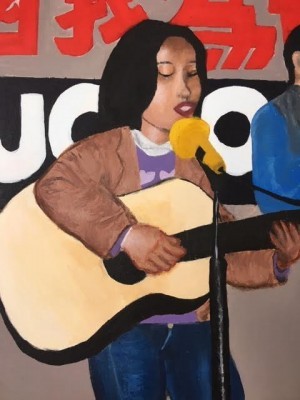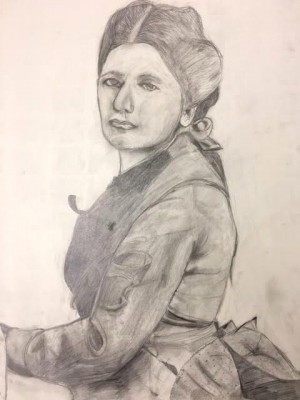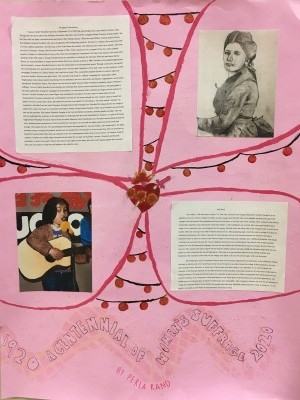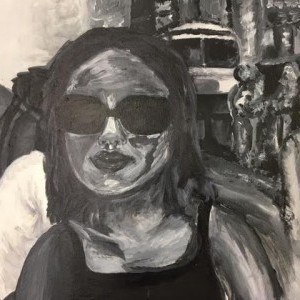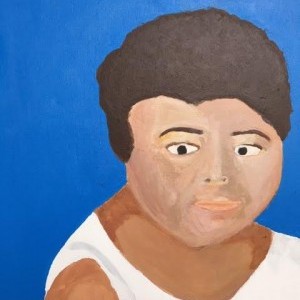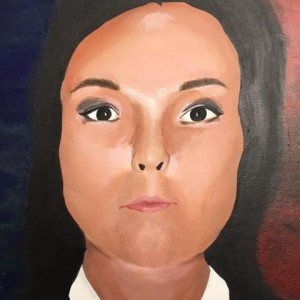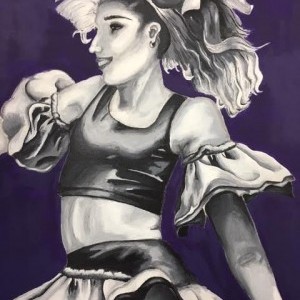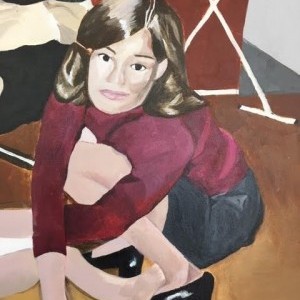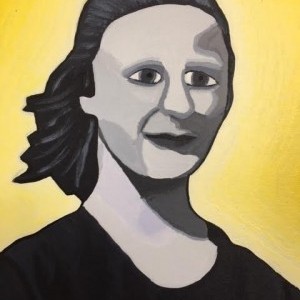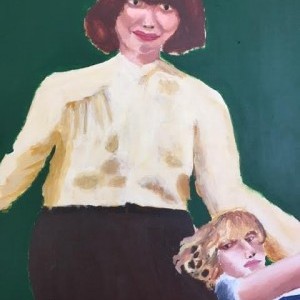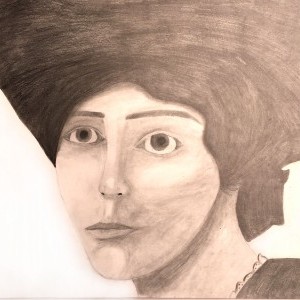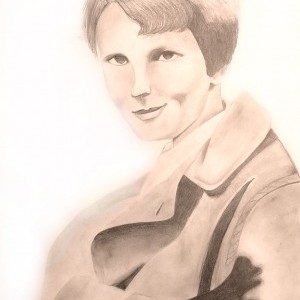Perla Rand
Immaculate Heart High School | Los Angeles, CA | 9-12th Grade
Inspirational Family Member
Li Ma
My mother, Li Ma was born on March 7 in 1969. She was born in the Chang Ning district women’s hospital. In an apartment, she lived with her mother, her father, and her younger sister Ma Wei. She was a daughter but also took care of her younger sister and parents. Her grandparents did not live with them, so she took care of her younger sister, cooked for her family, cleaned their apartment, and protected her sister from bullies.
Li Ma’s childhood was exciting. She was a good student and a singer. In her community, she was recognized for her singing. She had chores of taking care of her younger sister, as well as her mother. Often she would go to the bank to deposit money for her. After graduating high school she went to college in China for education and business. Her mother wanted her to be an educator, and she took business because she wanted to become a businesswoman.
In school in America, she went to college for accounting and eventually early childhood education. She began working as an accountant because she was an immigrant and did not know much English. She did not want to talk to people because she was still learning the language, but once she had children she decided that being an accountant did not fit her life anymore. She wanted more time to spend with her kids – my brother and me – and early childhood education might help her as a parent in a new culture that she was still figuring out. She went on to open multiple preschools and started multiple new businesses. Her experience shows that you can change your future to fit your life and be happy with your decisions.
My mother grew up in Communist China so there were not many opportunities for democracy in her childhood. When she came to America she never voted because she was never raised to care about issues like voting. In her experience, she was seen as equal to men. However, in recent years it has become clear that voting is very important. It is a way to express our concerns. In the local government, we can affect decisions in the immediate community around us. It is very easy to take part in local government. The state government is also very important to get involved in. Many young people have been known to lose interest in politics, so it is important to raise participation so our future state can be beneficial to us and future generations. My mother never was raised to have an interest in democracy and voting rights. After coming to America, she still did not take part in voting. It is important that we do not follow her example and make sure American culture promotes voting. In doing so, we can preserve our rights and privileges for this generation and many to come.
Historical Figure I Admire
Woodhull's Revolution
Victoria Claflin Woodhull was born on September 23 in 1838. She was brought up in a poor family in Homer, Ohio. Though she was the seventh of ten children, she became especially close with her youngest sibling Tennessee Celeste Claflin. She left Ohio after her father committed arson and fraud to their failing business.
When she turned fifteen Victoria eloped with her first husband, Canning Woodhull, who was a misogynistic and womanizing alcoholic. She had two children, Byron and Zulu, both of whom suffered disabilities. She left to go to New York where she reunited with Tennessee and worked as a medium. They then moved to Cincinnati, Chicago. She divorced Canning in 1864, which caused her to be in support of free love, which enabled people to remain in a relationship as long as they chose monogamous commitment. Her ideas were radical to the conservative mindsets of the 19th century. Though Woodhull faced the possibility of ostracism she persisted. When she met James Harvey Blood, her second husband, he shared similar beliefs of free love and they married in 1886.
Similarly to European Enlightenment salons hosted by women, Woodhull hosted a salon for radical ideas to be discussed and spread. Through connections, she opened her own brokerage firm and raised money through stocks with her sister Tennessee in New York. Later on, they founded a weekly newspaper, Woodhull & Claflin’s Weekly, and wrote for six years. They consistently attacked the lack of women’s rights and promoted equality between men and women. This coincided with Susan B. Anthony’s campaign for voting rights. Other inappropriate topics about controversial things like sex education, free love, short skirts, spiritualism, vegetarianism, and licensed prostitution flooded her readers. Her intense care and activism made Victoria Claflin Woodhull a mandatory figure in Women’s suffrage. Victoria Claflin Woodhull lived through war, reconstruction, and the second industrial revolution. She participated in the equal rights party during her campaign for the presidency. In a time period where ostracism and disgust was the response to divorce, Victoria Woodhull was a brave figure who combatted the misogyny of society. Ideas of female inferiority and manipulation of women surrounded her. In Woodhull’s own life she earned money through her early medium career to benefit her father. However, unlike many others, this affected her but she was capable of overcoming it. The stock market’s increase was explored by Woodhull and her sister Tennessee through their private brokerage firm.
Woodhull felt empowered by her change in status from a poor lowly girl, to a successful and fearless woman. Empowerment became evident when Woodhull was nominated and ran for president. She entered Frederick Douglass as her vice presidential nomination, breaking another boundary. She was able to understand the economy as she participated in a brokerage firm and could understand her audience. As a part of the Equal Rights Party Woodhull obviously strayed from the classic Democrat versus Republican race. Her perseverance shines through her story, teaching future generations to stick to a belief and work hard. One can break an unfair social norm if they work hard enough. Her respect for men, who did nothing but disrespect and manipulate her, was also notable. After being used by her father, alcoholic money-craving first husband, and all men who doubted her, she remained civilized toward them. She was motivated by herself to become better than what was expected of her. Her contemporaries believed she was too radical. For instance, Susan B. Anthony withdrew her initial support because she advocated for too many revolutionary concepts. Woodhull sacrificed her popularity to achieve her goals.
Women have just as many rights as men today, and while social stigmas against these concepts still exist, the modern woman has the freedom to do what she wants.
Explore the Archive
More From This Class
Click on the thumbnails below to view each student's work.Deadline Extended
There's still time to join Women Leading the Way.
Become a part of our storytelling archive. Enroll your class today.
Join the Project

